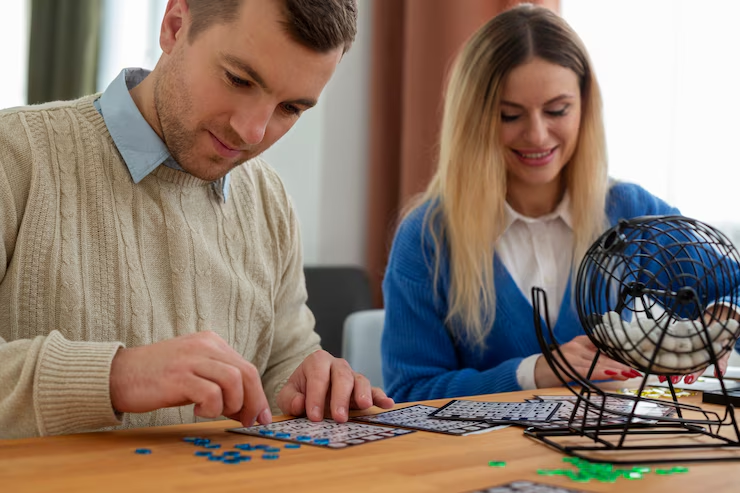For a long time, Puzzle Games have been both entertaining and educational. Engaging in puzzles helps improve mental stimulation, and they can change the learner’s thinking and problem-solving patterns. In recent years, learners can easily access brain teasers, logic games, and strategy games because of the popularity gained by Puzzle Games online. In the first paragraph of the article, we will even give a brief mention to the Ally Spin Casino review, before we take a more in-depth look at how puzzle games can actually help with learning and development.
Puzzle Games spark curiosity. They encourage learners to try, fail, and retry until they figure it out. Going through trial and error builds resilience, patience, and analytical skills. As people interact with puzzles, their minds become better at spotting patterns, confirming hypotheses, and testing strategies. As students develop these skills, they gradually start applying them in math, science, reading comprehension, or critical thinking.
Cognitive Benefits of Puzzle Games
Playing puzzles is beneficial for your memory whenever you play. When working on a jigsaw, crossword, or Sudoku, the brain is trying to remember different things. Repeating this information back helps to strengthen your memory, making it possible to hold onto multiple things.
Puzzle Games also enhance spatial reasoning. Spatial reasoning is required of the player to imagine transformations in shapes and objects. Understanding spatial reasoning, the skills required to perform these tasks, indirectly support geometry, map reading, and graph interpreting.
Problem-solving is central to puzzle play. A puzzle rarely gives its solution up front. Players instead smash into a problem and then walk away from a seemingly insurmountable task. It is very important to have lifelong learning and academic skills.
Finally, puzzles boost concentration and attention span. Keeping an eye on little things and finishing what you start is very important. For time progressives, the full attention becomes better, which is helpful for writing, projects, and readings.
Educational Applications in Schools and Homes
Teachers and parents can embed puzzle challenges into lessons. For example:
- Math class: Use logic puzzles or number cross-outs to reinforce algebraic thinking or divisibility rules.
- Language arts: Word puzzles, anagrams, or crosswords can expand vocabulary and spelling accuracy.
- Science: Use classification puzzles (matching animals to habitats) or sequencing steps in experiments.
- Home environments: Tangrams, jigsaw puzzles, or digital puzzle apps during downtime provide fun learning.
Integrating puzzle games with curricular topics increases relevance. For instance, after teaching geometric transformations, assign a puzzle that asks students to rotate shapes to fit a pattern. This helps bridge abstract concepts with playful exploration.
Puzzle Games Online: Advantages & Considerations
Puzzle Games online have multiple accessibility options. Learners can play anytime, everywhere, on desktops, tablets, and cellphones. Many platforms adjust the difficulty based on how well someone performs to maintain engagement. Certain puzzles are packaged with clues, solutions presented stepwise, or a timed mode to build speed.
Yet, online puzzles come with caveats. Using apps too much leads to screen fatigue, distractions from ads, and more. It is advisable to place a limit on screen puzzles and choose physical puzzles to avoid strain.
Another consideration is quality. Online puzzle sites come in a rainbow of shapes, sizes, and sophistication. When choosing a reputable gaming platform, make sure the puzzles have good rules, scaling problems, and experience.
Regular Puzzle Play: Healthy Habit for Growth
It’s better to be consistent than it is intense. Taking a break to complete a short puzzle each day for 10 to 15 minutes will get you stronger cognitive benefits than having a big binge session. Playing games regularly helps kids develop a range of important thinking habits. They start to notice patterns, check their assumptions, and refine their strategies, all without any pressure.
Use a variety of puzzle types: word, logic grid, spatial jigsaw, and math puzzles. This variety helps ensure better growth in speech, numbers, and vision.
Promoting puzzle play in collaboration works wonders, too. It makes learners explain their reasoning to each other, question each other’s assumptions, and refine strategies. When you chat about a puzzle you often find something that you missed before.
Evidence from Research
Numerous studies support the role of puzzles in learning. Studies indicate that solvings logic puzzles regularly improves fluid intelligence and executive functioning. A puzzle exposure can lead to improved problem-solving abilities, enhanced control over attention, and better performance in maths and reading.
Playing with puzzles when you’re young can help with spatial skills that help with STEM later in life. Puzzles act like a gym for the mind and help in the growth and formation of neural connections.
Tips for Educators and Parents
- Start with guided puzzles and gradually increase complexity.
- Encourage learners to explain their reasoning, even if their solution is wrong.
- Use mistakes as discussion points: “Why did that method fail? What other path could you try?”
- Celebrate small wins to build confidence.
- Integrate puzzles into class warmups, transitions, or homework routines.
- Monitor screen time and mix analog and digital puzzles.
Sum Up
Educational development benefits greatly from Puzzle Games. They help with memory, reasoning, focus, and metacognition. Puzzle Games online have grown enormously, thanks to which learners now have easy access every time to rich and adaptive challenges. When intentionally designed and used, they can be more than entertainment but rather tools for a lifetime.
Creating puzzles for learning always helps in developing students to think, experiment and grow.

